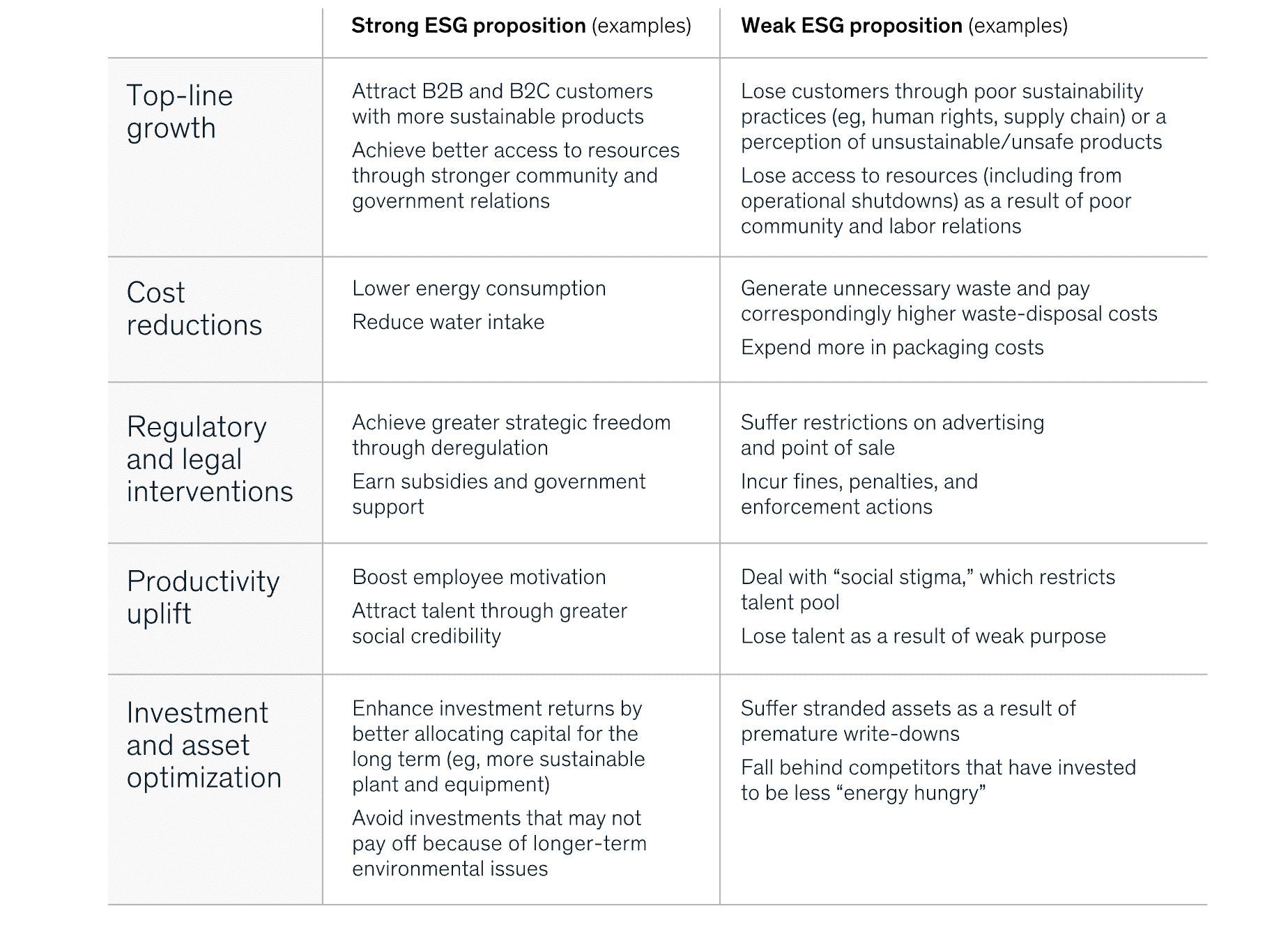In today’s fast-paced business world, it’s not only possible to make a positive impact on the planet and society while improving financial performance—it’s essential. The secret to achieving this trifecta of success lies in adopting Environmental, Social, and Governance (ESG) principles within your organization.
The Benefits of ESG for Employees
The connection between ESG and the employee experience is profound. When companies prioritize ESG, employees often experience a greater sense of purpose and engagement, leading to a more fulfilling and meaningful work life. Here’s how the principles can enhance the employee experience:
1. Improved Workplace Environment
- Healthier and Sustainable Workspaces: ESG-driven companies frequently design their workplaces with sustainability in mind. This means better air quality, natural lighting, and a focus on employee well-being, all of which contribute to a healthier, more comfortable work environment.
- Enhanced Well-being: By prioritizing social aspects of ESG, such as wellness programs, mental health support, and flexible work arrangements, companies can create a supportive culture that fosters employee satisfaction.

2. Increased Engagement and Job Satisfaction
- Meaningful Work: Employees in ESG-focused organizations often feel more connected to their work, knowing that their efforts contribute to positive environmental and social outcomes.
- Sense of Purpose: Companies with strong ESG commitments attract employees who share these values, fostering a deeper sense of purpose and fulfillment in their roles.
3. Better Work-Life Balance
- Flexible Working Arrangements: ESG-oriented companies are more likely to offer remote work options or flexible hours, helping employees achieve a better balance between work and personal life.
- Supportive Policies: Companies committed to ESG often implement policies that support parental leave, diversity and inclusion, and work-life integration, further enhancing employee satisfaction.
4. Career Development and Learning Opportunities
- Continuous Learning: ESG-focused organizations invest in employee development, offering training on sustainability practices, ethical business conduct, and other relevant skills.
- Growth Opportunities: As ESG principles gain traction, employees may find more opportunities for career advancement in sustainability-focused roles.
5. Job Security and Stability
- Ethical Governance: Strong governance practices ensure companies are well-managed, reducing risks of scandals or financial instability that could threaten jobs.
- Long-term Sustainability: Companies committed to ESG are more likely to focus on long-term success, providing greater job security for their employees.
The Benefits of ESG for Employers
For employers, the adoption of ESG principles is a strategic move that can lead to substantial business benefits. Not only does it help in building a positive brand image, but it also contributes to financial performance and risk management. Here’s how ESG can be a game-changer for businesses:
1. Attracting and Retaining Talent
- Employer of Choice: Companies with strong ESG commitments often stand out as desirable workplaces, attracting top talent who seek ethical and sustainable employers.
- Reduced Turnover: A positive workplace culture and alignment with employees’ values result in higher job satisfaction and lower turnover rates.
2. Enhanced Reputation and Brand Loyalty
- Positive Brand Image: Prioritizing ESG principles positions companies as responsible and ethical, enhancing their reputation with customers, investors, and the public.
- Customer Loyalty: Consumers are increasingly drawn to companies that demonstrate a commitment to social and environmental responsibility, leading to stronger customer relationships and brand loyalty.
- Higher Sales: Companies that embrace ESG principles can attract and retain more customers by being transparent about their efforts. According to PwC’s “Voice of the Consumer Survey 2024,” 46% of consumers are buying more sustainable products and are willing to pay up to 9.7% more for brands that share their values. These socially conscious consumers are more loyal to businesses that prioritize ethical practices and contribute to the greater good.
3. Financial Performance and Risk Management
- Operational Efficiency: Implementing environmental practices like energy efficiency and waste reduction can lower operational costs and improve profitability. Companies that invest in ESG are better equipped to adapt to evolving market conditions, ensuring long-term success.
- Risk Mitigation: Good governance practices reduce the risk of legal issues, scandals, and financial losses, contributing to financial stability.
4. Regulatory Compliance and Investor Confidence
- Meeting Regulatory Requirements: Adopting ESG principles helps companies stay ahead of regulatory changes related to environmental and social issues, reducing the risk of non-compliance penalties.
- Increased Investor Confidence: Investors are increasingly considering ESG factors in their decisions, and companies with strong ESG practices may attract more investment and favorable financing terms. For instance, a 2024 Morgan Stanley survey revealed that 77% of global investors are interested in sustainable investing, highlighting the growing attraction to companies that prioritize these principles.
5. Innovation and Long-term Success
- Driving Innovation: ESG principles encourage companies to innovate in areas such as sustainable products, ethical supply chains, and new business models that meet evolving consumer demands.
- Sustainability and Resilience: Focusing on long-term environmental and social sustainability helps companies build resilience against future challenges, ensuring continued success.

Source: Five ways that ESG creates value – McKinsey & Company
Webinar on ESG in the Workplace
To explore these benefits in greater detail and learn how to effectively implement ESG principles in your workplace, we invite you to join our upcoming webinar. Watch our webinar hosted by our expert, Enitia Karijodinomo, Manager Partner Success.
This session explores:
- What is ESG?
- ESG Offices and Workplaces
- ESG in Building Design and Management
- Role of Smart Sensors in ESG
- Future Trends in the Workplace
- Wrap up + PropTech Event Reminder
The webinar lasts less than an hour and is an excellent opportunity for anyone looking to stay ahead in the ever-evolving world of the workplace. Watch it now!











